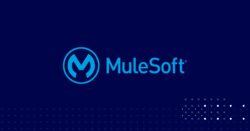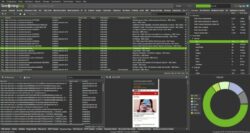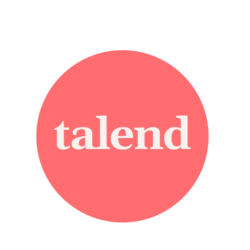MongoDB
Get your ideas to market faster with a developer data platform built on the leading modern database. MongoDB makes working with data easy.
MongoDB
Find out moreWho is MongoDB for?
- Cloud Service Providers
- Data Analysts
- Data Architects
- Data Scientists
- Database Administrators
- Developers
- Government Agencies
- IT Managers
- Startups
Things to consider
- Requires technical knowledge
About MongoDB
MongoDB is a document-oriented NoSQL database used for high volume data storage and retrieval.
It is a cross-platform database that can be used with various programming languages such as Java, Python, and Ruby.
MongoDB is designed to be flexible and scalable, making it ideal for businesses of all sizes.
Who Should Use MongoDB?
- Developers who need to store and retrieve large amounts of data quickly
- Businesses that require scalability and flexibility in their database solutions
- Companies that need to handle complex data structures and relationships
Key Benefits and Features
- Scalability: MongoDB can handle large amounts of data and can be scaled horizontally across multiple servers.
- Flexibility: MongoDB's document-oriented data model allows for easy changes to the database schema.
- High Performance: MongoDB's architecture is optimized for high performance and can handle complex queries efficiently.
- Open Source: MongoDB is open source software, which means it is free to use and can be customized to meet specific business needs.
- Cloud-Based: MongoDB can be used in the cloud, making it easy to deploy and manage.
How MongoDB Compares with Competitors
Compared to other NoSQL databases, MongoDB offers a unique combination of scalability, flexibility, and performance.
It is particularly well-suited for handling complex data structures and relationships.
Some of the key competitors to MongoDB include:
- Apache Cassandra
- Amazon DynamoDB
- Couchbase
- Redis
Cloud Service Providers
Keep up to date about Data Management offers like MongoDB
Privacy| Features |
|---|
Help & Support
- What is MongoDB?
- MongoDB is a general purpose, document-based, distributed database built for modern application developers and for the cloud era.
- What are the benefits of using MongoDB?
- MongoDB offers several benefits such as flexible data model, scalability, availability, high performance, and ease of use.
- What programming languages can be used with MongoDB?
- MongoDB supports several programming languages such as Java, C#, Python, Node.js, Ruby, and PHP.
- What is the difference between MongoDB and traditional relational databases?
- MongoDB is a document-based database whereas traditional relational databases use tables with rows and columns. MongoDB offers a more flexible data model and is designed for scalability and performance.
- What is MongoDB Atlas?
- MongoDB Atlas is a fully-managed cloud database service that provides automated provisioning, scaling, and backup of MongoDB databases.
- What is the pricing for MongoDB Atlas?
- Sorry, pricing is excluded from this list of FAQs.
Comparisons
Data Management for Cloud Service Providers
Data Management for Data Analysts
 MongoDB / Commvault Data Protection
MongoDB / Commvault Data Protection
 MongoDB / Amazon Web Services (AWS)
MongoDB / Amazon Web Services (AWS) MongoDB / Microsoft Azure
MongoDB / Microsoft Azure MongoDB / Alibaba Cloud
MongoDB / Alibaba Cloud MongoDB / Google Analytics
MongoDB / Google Analytics MongoDB / CloudMigrator360
MongoDB / CloudMigrator360 MongoDB / Data Quality Pro
MongoDB / Data Quality Pro
 MongoDB / Informatica Data Governance
MongoDB / Informatica Data Governance
 MongoDB / Python
MongoDB / Python
 MongoDB / Collibra Data Governance Center
MongoDB / Collibra Data Governance Center MongoDB / Java
MongoDB / Java
 MongoDB / D3.js
MongoDB / D3.js MongoDB / H2O.ai
MongoDB / H2O.ai
 MongoDB / DataRobot
MongoDB / DataRobot
 MongoDB / RapidMiner
MongoDB / RapidMiner
 MongoDB / KNIME
MongoDB / KNIME MongoDB / Integromat
MongoDB / Integromat MongoDB / n8n
MongoDB / n8n
 MongoDB / Neo4j
MongoDB / Neo4j
Data Visualization for Data Analysts
Data Management for Data Architects
Data Management for Data Scientists
 MongoDB / Swift for TensorFlow
MongoDB / Swift for TensorFlow
 MongoDB / Mulesoft
MongoDB / Mulesoft MongoDB / DreamFactory
MongoDB / DreamFactory MongoDB / Meteor
MongoDB / Meteor MongoDB / Launchpad
MongoDB / Launchpad MongoDB / Cassandra
MongoDB / Cassandra
Data Visualization for Data Scientists
Data Management for Developers
Data Management for Government Agencies
Other Data Management
 MongoDB / Oracle Cloud Infrastructure
MongoDB / Oracle Cloud Infrastructure
 MongoDB / INE
MongoDB / INE
 MongoDB / Symantec
MongoDB / Symantec
 MongoDB / Screaming Frog
MongoDB / Screaming Frog MongoDB / Recorded Future
MongoDB / Recorded Future MongoDB / SAP Business Solutions
MongoDB / SAP Business Solutions MongoDB / CloudEndure Migration
MongoDB / CloudEndure Migration
 MongoDB / JetBrains
MongoDB / JetBrains
 MongoDB / Talend Data Quality
MongoDB / Talend Data Quality
 MongoDB / Comodo
MongoDB / Comodo MongoDB / Nessus
MongoDB / Nessus MongoDB / Microsoft Office 365
MongoDB / Microsoft Office 365
 MongoDB / Dropbox
MongoDB / Dropbox MongoDB / Ember.js
MongoDB / Ember.js MongoDB / Backbone.js
MongoDB / Backbone.js
 MongoDB / Jitterbit
MongoDB / Jitterbit
 MongoDB / Udacity
MongoDB / Udacity

